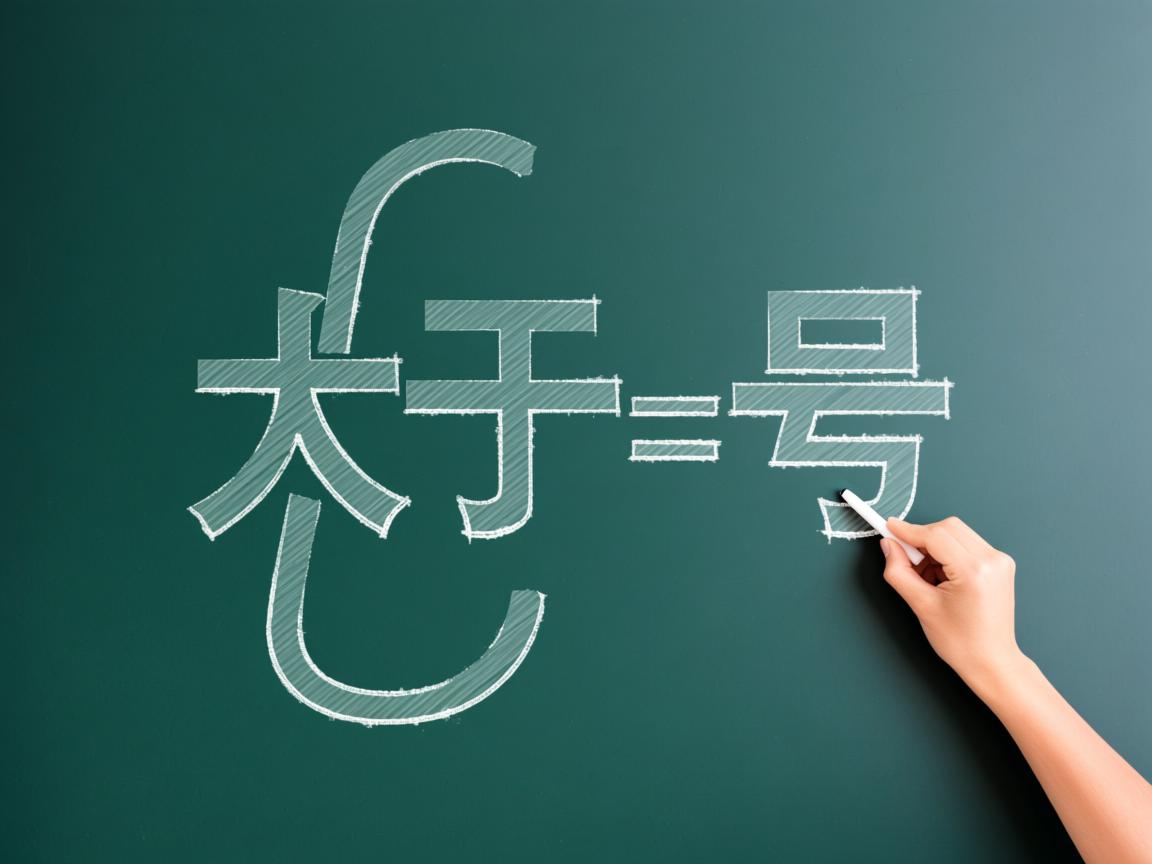Java编程中,大于号(>)是一个基本的比较运算符,用于比较两个值的大小,以下是关于Java中大于号的详细解释和使用方法。
基本用法
1 比较数值
在Java中,大于号主要用于比较两个数值的大小。
int a = 5;
int b = 3;
if (a > b) {
System.out.println(a + " is greater than " + b);
} else {
System.out.println(a + " is not greater than " + b);
}
输出:
5 is greater than 3在这个例子中,a > b 表达式返回 true,因为5确实大于3。
2 比较字符
大于号也可以用于比较字符的ASCII值。
char ch1 = 'A';
char ch2 = 'B';
if (ch1 > ch2) {
System.out.println(ch1 + " is greater than " + ch2);
} else {
System.out.println(ch1 + " is not greater than " + ch2);
}
输出:
A is not greater than B在这个例子中,'A' 的ASCII值是65,'B' 的ASCII值是66,ch1 > ch2 返回 false。
在条件语句中的应用
大于号经常与 if、while、for 等控制结构一起使用,以根据条件执行不同的代码块。

1 if 语句
int score = 85;
if (score > 60) {
System.out.println("Pass");
} else {
System.out.println("Fail");
}
输出:
Pass2 while 循环
int count = 0;
while (count > -5) {
System.out.println("Count is: " + count);
count--;
}
输出:
Count is: 0
Count is: -1
Count is: -2
Count is: -3
Count is: -4在这个例子中,循环会一直执行,直到 count 不再大于 -5。
在数组和集合中的应用
大于号可以用于遍历数组或集合时进行元素比较。
1 数组遍历
int[] numbers = {1, 3, 5, 7, 9};
for (int i = 0; i < numbers.length; i++) {
if (numbers[i] > 5) {
System.out.println(numbers[i] + " is greater than 5");
}
}
输出:
7 is greater than 5
9 is greater than 52 集合遍历
import java.util.ArrayList;
import java.util.List;
List<Integer> list = new ArrayList<>();
list.add(1);
list.add(3);
list.add(5);
list.add(7);
list.add(9);
for (Integer num : list) {
if (num > 5) {
System.out.println(num + " is greater than 5");
}
}
输出:

7 is greater than 5
9 is greater than 5在自定义对象中的使用
当比较自定义对象的属性时,大于号同样适用,假设我们有一个 Person 类,包含 age 属性,我们可以比较两个人的年龄。
class Person {
String name;
int age;
Person(String name, int age) {
this.name = name;
this.age = age;
}
}
public class Main {
public static void main(String[] args) {
Person person1 = new Person("Alice", 30);
Person person2 = new Person("Bob", 25);
if (person1.age > person2.age) {
System.out.println(person1.name + " is older than " + person2.name);
} else {
System.out.println(person1.name + " is not older than " + person2.name);
}
}
}
输出:
Alice is older than Bob注意事项
-
数据类型兼容性:确保比较的两个值是兼容的数据类型,否则可能会导致编译错误或意外的结果,比较一个
int和一个double时,Java会自动将int提升为double。 -
避免空指针异常:在比较对象属性时,确保对象不为
null,否则会抛出NullPointerException。
相关问答FAQs
Q1: 如何在Java中比较两个浮点数的大小?
A1: 在Java中,比较两个浮点数(如 float 或 double)的大小与比较整数类似,使用大于号 >,由于浮点数的精度问题,建议在比较时考虑一个小的容差值,以避免由于精度误差导致的错误比较。

double a = 0.1 + 0.2;
double b = 0.3;
double tolerance = 0.0001;
if (Math.abs(a b) < tolerance) {
System.out.println("a and b are approximately equal");
} else if (a > b) {
System.out.println("a is greater than b");
} else {
System.out.println("a is less than b");
}
Q2: 大于号在Java中还有哪些其他用途?
A2: 除了作为比较运算符,大于号在Java中还可以用于以下场景:
-
泛型中的通配符:在泛型中,
?> extends SomeClass表示类型参数是SomeClass或其子类,虽然这里没有直接使用大于号,但extends关键字与大于号在语法上有相似之处。 -
位运算:在位运算中,左移运算符
<<和右移运算符>>使用了大于号的变体。a << 1将a的二进制表示左移一位。 -
Lambda表达式:在Lambda表达式中,箭头
->用于表示输入和输出的关系,其中包含了大于号。(int x) -> x > 0


